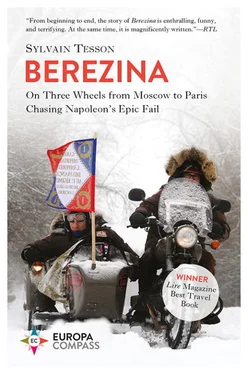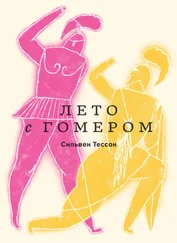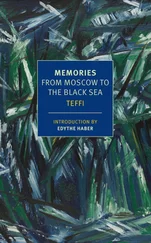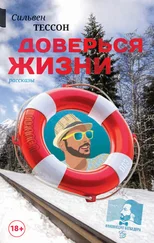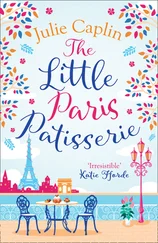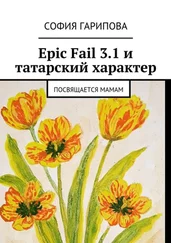“We bewildered the French by withdrawing skillfully.” This was the kind of declaration we read on the documents in the display cabinets. The Russians wrote their history by taking quite a lot of liberties. On the contrary, the French thought Russians had a “passive” courage. [5] Op. Cit.
However, Russian enthusiasm was fair and square. Is it a crime to sacrifice a little truth to pride?
The snow poured silence onto the road. Night fell, and it continued to snow in the dark. In Moyjak, thanks to Mikhail, the watchman of a truck garage, we found somewhere to stay in a workmen’s club attached to a factory. In a modest room, heated by the local thermal factory, we were glad we didn’t have to build a fire and keep watch in the Cossack night, roll up in bad coats, or protect ourselves against the snow under a few valuable tapestries snatched off Moscow palace walls.
We even unearthed an open sauna. In Russia, for a few hundred rubles, you can purify your body and cleanse your soul in public steam rooms. It was 176°F in the wooden hut. We were there, stark naked, felt hats on our heads, taking turns to whip one another with veniki , silver birch branches which, when slapped on the skin, are supposed to open the pores, stir the blood, and warm you up. It took at least an hour of pummeling for our bodies to forget that they’d been very cold on the road. And yet we’d left Moscow only a day earlier!
At midnight, Vassily rang. “OK, guys?”
“What about the repairs?” I said.
“Finished. I mean almost,” he said.
“When will you catch up?”
“We’ll just finish tweaking things tonight, have the oil changed, fill up at dawn, set off, and be in Borodino by midday tomorrow.”
“I hope so,” I said.
“Hope is the last thing to die,” he said.
DAY TWO.
FROM BORODINO TO VYAZMA
Unfortunately, well-being—like energy and happiness—can’t be stored. If there’s a raging storm early in the morning, then it will jump at your throat whether or not you have simmered in a banya the night before and slept in a warm bed. That morning, the Ural had vanished under the snow. We shoveled and went to the battlefield to wait for our friends.
Around October 28th, 1812, almost ten days after leaving Moscow, the Grande Armée reached Borodino and crossed the same field where the battle had raged fifty-two days earlier. The residents had not returned to the villages. The ground was strewn with putrefying corpses. Heads and limbs were sticking out of the soil. The sky stank with miasma and flocks of scavenging birds reigned over this tableau. And so the soldiers walked on, sometimes crushing the flesh of their comrades or adversaries with their laced boots. There was the odd moan: a survivor, a ghost unwanted by death, who had spent two months feeding on the dead flesh of his brothers, and found refuge in the carcasses of animals. In the collective imagination, crossing the Borodino field represents the beginning of those idealized images of the Grande Armée soldier spending the night in a horse’s entrails. Sergeant Bourgogne is quite candid: “There was nothing sadder than the sight of these dead who had barely kept their human form…”
This made me think. I found the “nothing sadder” extraordinarily restrained. What would the rest of us have felt before such a sight? How would we have described this Borodino plain, we who had not accepted the fact that eighty-nine of our soldiers should have given their lives over ten years of war in Afghanistan? How could these men bear what they saw? Does one really get used to being near the dead? Was it our nerves that had weakened over eight generations? Over our forty years of life, we had seen a few corpses, perhaps thirty but not much more: close friends or relatives dying in their beds, some killed in accidents, fallen in the mountains, or dropped dead on the road. But they, the soldiers of the year 1812, were actually treading over fields of flesh, sleeping in thalwegs “full of putrefying corpses”—Bourgogne again—seeing their regiments decimated by artillery in a few hours, their friends of twenty years cut in half by the edge of a saber, and getting to the evening at the end of days when seventy thousand men had been torn to pieces all around them.
“You see, guys,” Gras said, “perhaps the thing about modernity isn’t so much that we’ve become a society of the spectacle, but just that the spectacle has grown gentler.”
“And for that let’s be thankful,” I said.
The other explanation is provided by Caulaincourt. It evokes all that the hapless infantrymen of 1914 put up with. They tolerated being the witnesses of horror because they were also its victims: “Perhaps we owed our carefree attitude to the fact that the dangers each of us faced personally dulled the pity which, in other circumstances, the painful spectacle before our eyes would have inspired.”
At noon, Vassily calls. “There’s a problem with the generator. We’re still in Moscow.”
“Will you be long?”
“No, we finished. You go ahead. We’ll join you in Vyazma tonight. We’re faster, anyway: there’s three of you, you’re heavy, and you’re French.”
There were other monuments erected on the Borodino field. One of them paid homage to the dead of the Grande Armée ; it had been unveiled by President Giscard d’Estaing during his mandate. You had to push through the powdery snow in order to get close to it.
“Have you noticed?” Goisque said, “Only the passage to Russian monuments is swept by the maintenance department.”
Coming from a country where much attention is paid to the Other, to our victims, our adversaries, our enemies, where we never missed an opportunity to blame ourselves for having defended our interests, and to apologize for winning, we did find something slightly cavalier about this difference in attitude.
We drove to the Minsk road through small country lanes. The bike wheels had a good grip on the hard snow. If it weren’t for the backfiring, we could have been on a sleigh, riding through fairy-tale forests. I’d miscalculated the gas reserve, and we broke down four miles from the main road. Gras and I set off with a can, toward a village becalmed in the snowdrift, a mile away, behind a curtain of poplars, and left Goisque to watch over the Ural. No sooner had we reached the isbas than a police car stopped by the motorbike and sidecar. The Russians syphoned their tank, gave us a gallon, and left wishing Goisque that he “may not die.” The Russians were delighted by the sight of the flag, the bicorn, and our imperial insignia. The name of Napoleon always caused them a wriggle of pleasure. Mentioning to people the name of someone they have triumphed over is one of those little joys it would be a shame to deprive them of. That day, we owed our gallon of gas to the Emperor’s aura.
In the winter, the road to Minsk isn’t advisable for an overloaded bike with sidecar that can do fifty miles an hour tops. A steady line of trucks drove west, brushing the aquaplaning on the disgusting mud. Latvians, Czechs, Russians, and Germans drove in a line, at full speed. The entire old Eastern bloc was traveling on the road, transporting Russian vodka, illegal Tajiks, and Polish meat, and didn’t give a damn about the little khaki-green Ural the size of a shoe polish kit.
It was there, on the way to Vyazma, that the cold bit into the Retreat columns. “The following day, the 29th,” Caulaincourt writes, “we were in Ghjat. It was bitterly cold. […] Here, the winter was already more noticeable.” The cold… It was the cold, even more than the distance, the Cossack raids, starvation, and epidemics, that would bring down the Grande Armée , and “melt it down,” to quote Kutuzov. In Moscow, the soldiers had enjoyed good weather. They had made up for the forced marches by piercing barrels and getting drunk on Jamaican rum, German schnapps, Russian vodka, and everything not snatched away by the fire. They had organized balls, forcing Jewish fiddlers hiding in the rubble to provide the tunes. Some had even found themselves women thanks to the principle of life’s oscillation Sergeant Bourgogne puts forward in his Memoirs : “From battle to love and from love to battle.” But how many soldiers had devoted their months of billeting to making muffs, woolen coats, rabbit gloves, and fur chapkas ? Only the Polish soldiers had taken a few precautions. They were Slavs, so they knew what fuel was required by the winter.
Читать дальше
